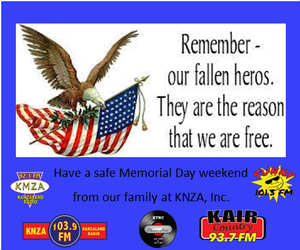According to the Centers for Disease Control, 300,000 athletes suffer sports-related concussions each year, including 136,000 high school athletes. The recent suicides of some prominent ex professional football players have highlighted the risk of concussions and other brain injuries among athletes. Many states, including Nebraska, are now passing laws in an attempt to raise awareness of concussions in youth sports.
Rusty McKune, the President of the Nebraska State Athletic Trainers Association and the Sports Medicine Coordinator at the Nebraska Medical Center in Omaha, gave a presentation in Falls City last week in which he explained the signs and symptoms concussions and the provided information on Nebraska’s Concussion Awareness Act.
McKune defines a concussion as a mild traumatic brain injury that interferes with the normal function of the brain. He says a lot of progress has been made recently in the understanding of concussions, but there is still a lot to learn. (play audio :22)
Signs an athlete may have sustained a concussion include if they appear dazed or stunned, have a vacant stare, slurred speech, or are disoriented. Symptoms that someone may have suffered a concussion include headache, nausea, balance problems or dizziness, double or fuzzy vision, sensitivity to light or noise, and feeling slowed down or groggy, and changes in sleep patterns.
McKune says the duration of those symptoms varies, and may not always be immediately recognized as a concussion. He says concussions are not fatal and the brain will return to normal after a concussion, if it’s allowed to heal. However, failure to recognize and properly manage a concussion can lead to a potentially catastrophic injury called second impact syndrome. (play audio :26)
Nebraska’s new concussion law – LB 260 – aims to prevent young athletes from returning to play too soon after a concussion. The legislature approved the law unanimously last year and it takes effect on July 1st. McKune says the law makes the initial management of a concussion easy. (play audio :18)
Nebraska’s law applies to all public and parochial schools in the state, as well as youth sports organizations with participants under the age of 19. Nebraska is one of a wave of states to enact concussion laws in the past three years. Thirty-five states have passed similar legislation.
The increased focus on concussions comes amid recent news of the suicide deaths of prominent former professional football players who suffered multiple concussions during their playing careers. McKune hopes the attention on concussions has a positive effect. (play audio :42)
McKune says support from the National Football League was key to building support for LB-260. His advice to coaches and parents who question whether a young athlete has a concussion is – “when in doubt, sit them out” – and remember it’s only a game.
Last week’s presentation was sponsored by Community Medical Center, along with Falls City Public School, Falls City Sacred Heart, and Humboldt-Table Rock-Steinauer Schools.
MOST VIEWED STORIES
Cold case investigation leads to Holton warrant
Horton City Clerk's resignation accepted Monday
Effingham owner regains truck following theft, arrest
Former Kickapoo Tribal chairman arrested
Winchester native named as Amberwell CEO
Severe storms move through NE KS
Walnut Township recall coming; Friday mtg erupts in arrest
Holton property search concludes with arrest
Mayetta pair arrested on meth, child endangerment charges
Rural Horton man charged in alleged beating
Juveniles face charges following Atchison break-in
Atchison Co's Oswald named honorary bailiff for KS Court
No injuries in early Sunday morning house fire in Falls City
McLouth man injured in Monday wreck
KS prepares for severe weekend weather
Senator Slama on tax relief efforts
Former AG Schmidt running for KS' 2nd Congressional District
Commission approves agreement for budget help
LATEST STORIES
Walnut Township recall coming; Friday mtg erupts in arrest
Nemaha NRD honoring Stewardship Week
Richardson County Deputies busy during special enforcement
Peru State faculty member to be honored
Nebraska Primary Election reminders
Severe storms move through NE KS
NVCH receives $415,000 grant for expansion project
KS prepares for severe weekend weather


 Printer Friendly
Printer Friendly
 Email to a Friend
Email to a Friend





